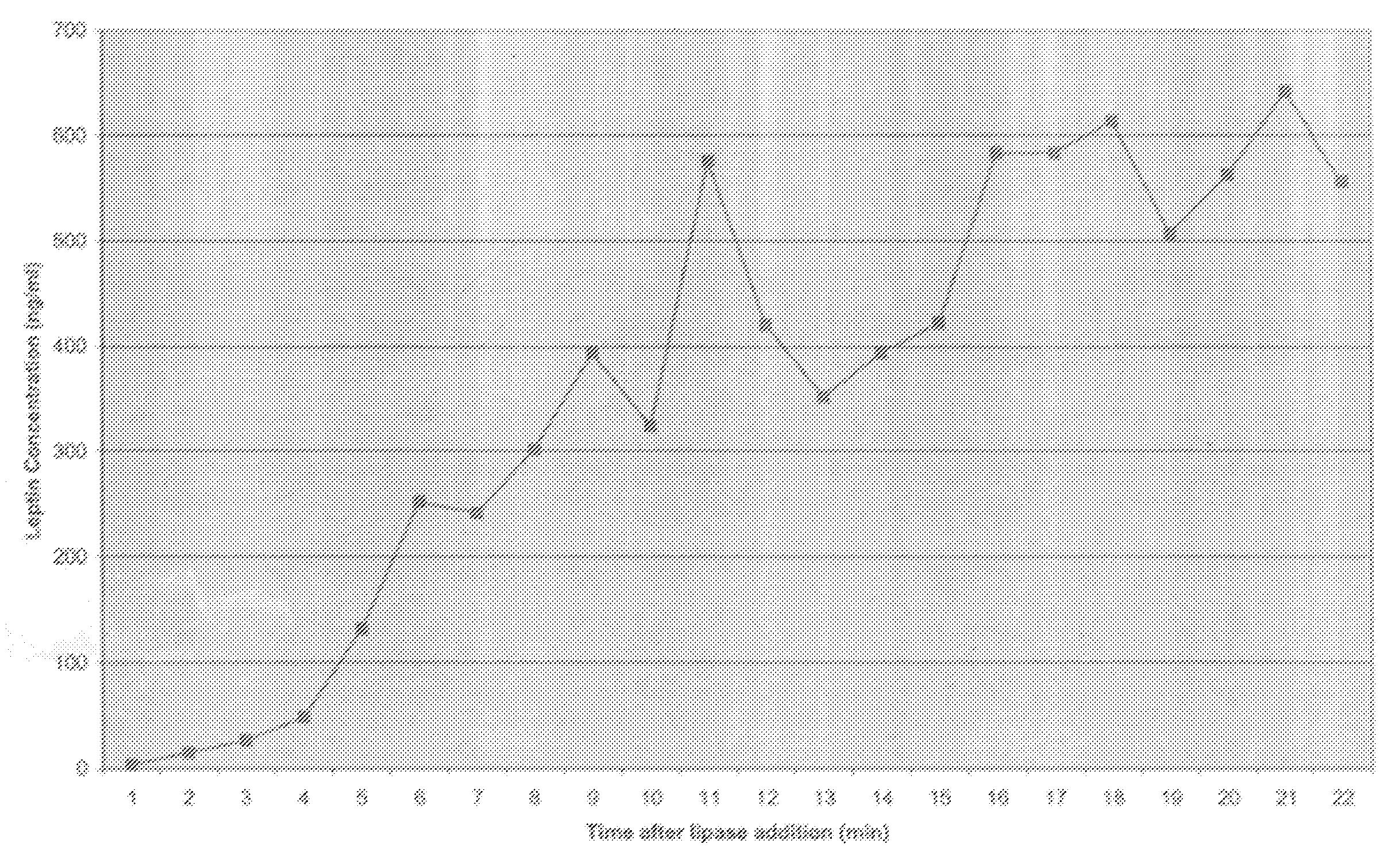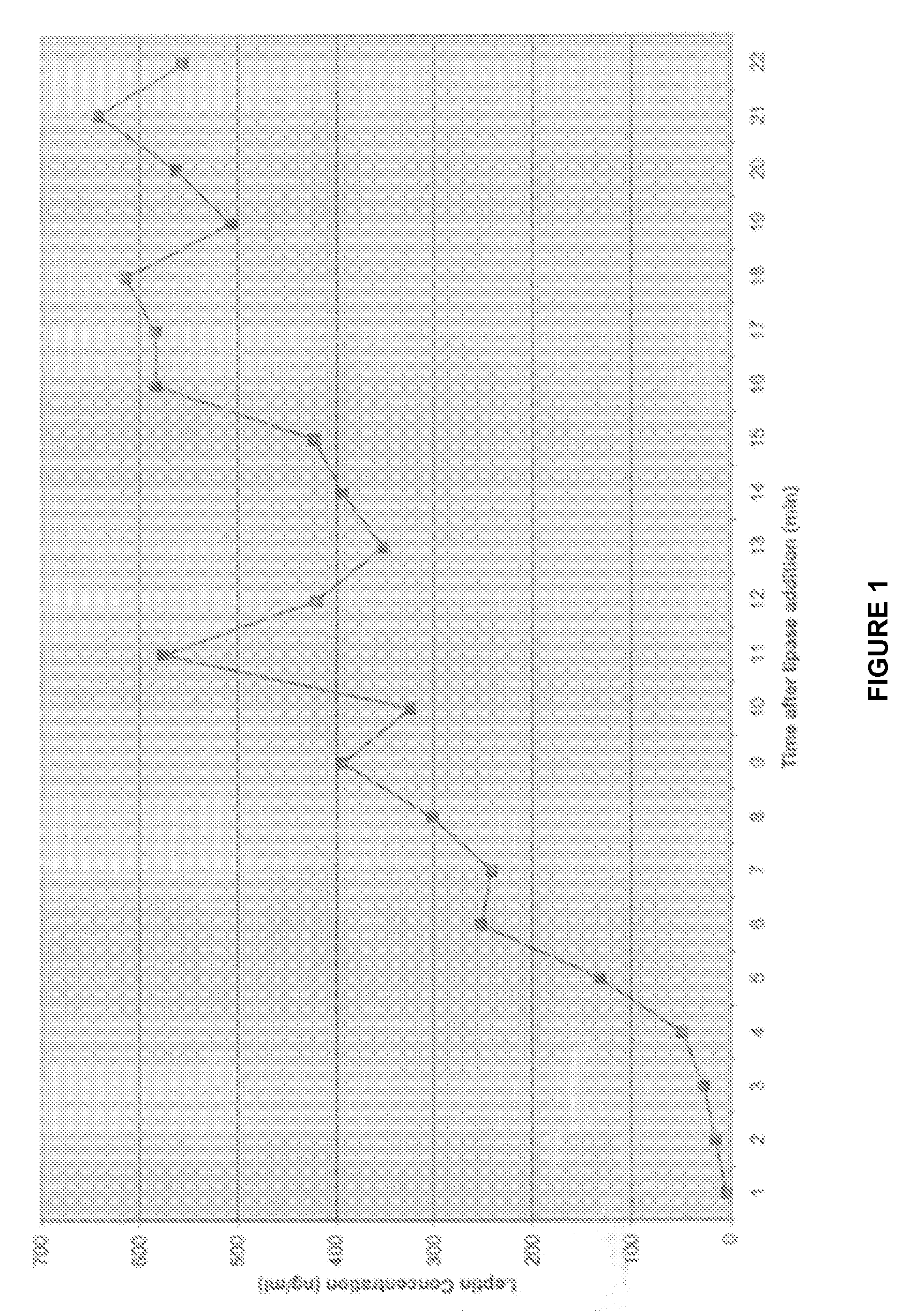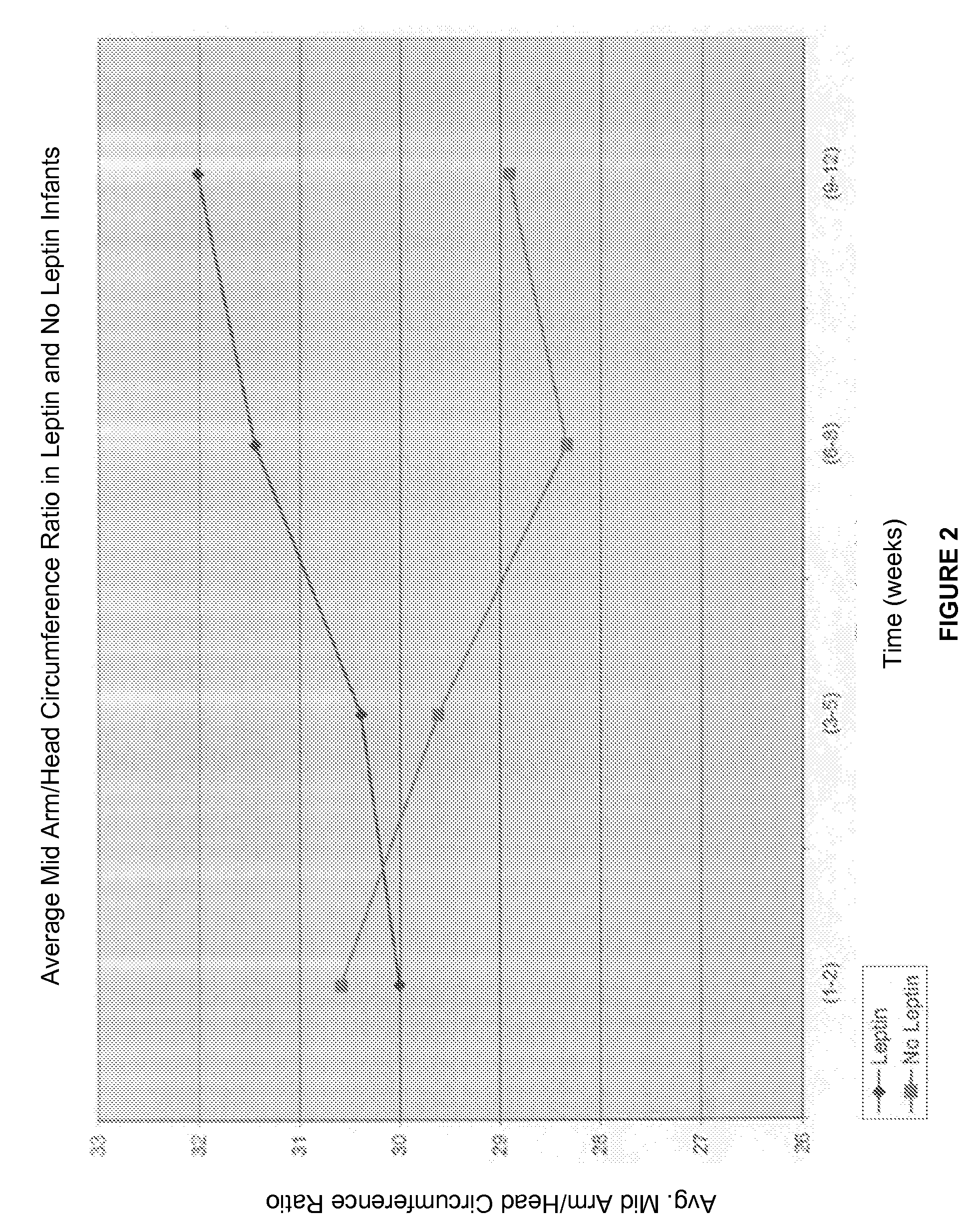Administration of leptin
a technology of leptin and leptin injection, which is applied in the field of leptin injection, can solve the problems of limited amount of leptin that can be delivered by these means, and the infant is leptin-deficient, and achieve the effect of safe administration to infants
- Summary
- Abstract
- Description
- Claims
- Application Information
AI Technical Summary
Benefits of technology
Problems solved by technology
Method used
Image
Examples
example 1
Determination of Leptin Levels in Breast Milk
[0046]Measurement of leptin in breast milk: All breast milk was obtained from donors who voluntarily consented to participate in the study. They were healthy women from the Research Department, between 25-35 yr of age, who planned to breast-feed and had delivered healthy full term infants. Milk was collected by either hand expression or a hand-held electric pump and stored frozen at −20° C. For leptin analysis, milk samples were thawed overnight in the refrigerator. Skim milk was prepared by centrifugation of whole milk at 13000 rpm for 10 min at 4° C. to separate milk fat from the liquid phase. A spatula was used to remove the layer of fat. Milk samples were sonicated for 3-10 sec bursts with 20 sec cooling intervals using a Branson Model W 180 sonicator with a stepped microtip. Radioimmunoassay (Lino Research, St. Charles, Mo.) for serum leptin was performed as described by the manufacturer.
[0047]Cytospin cell preparations: Human mammar...
example 2
Determination of Leptin Content in Lipase-Treated Milk Samples
[0059]In Example 1 it was critical to sonicate the milk sample to detect the high levels of leptin in whole milk. Occasionally, with high fat milk samples, sonication interfered with the leptin radioimmunoassay, and no pellet was formed in the assay. Without intending to be bound by theory, this is probably due to the formation of micelles in high fat sonicated milk samples. To attempt to circumvent this problem, we used pancreatic lipase to disrupt the MFG as described below.
[0060]Six hundred microliters of whole milk was incubated in a 37° C. water bath for 10 min. Six microliters of a 1 M sodium bicarbonate solution was then added in order to adjust the pH of the sample to approximately 8.0, the optimal pH for pancreatic lipase activity. Two and four-tenths microliters (30 U) of pancreatic lipase (Sigma Chemical Co., St. Louis, Mo.) was added to the milk sample, and the sample was incubated with constant shaking at 37°...
example 3
Isolation of Milk Fat Globules and Determination of Leptin Levels
[0061]MFGs were isolated by methods known to those skilled in the art such as the method described in Giuffrida et al. (J. Prot Chem, 17:143-148, 1998) herein specifically incorporated by reference. Fresh milk was collected from mothers enrolled in a Newborn growth study. Milk (10 ml) was transferred to a 15 ml centrifuge tube and spun at 2000 g for 20 minutes at room temperature. The supernatant (cream) was collected by pipetting and transferred to a 1.5 ml microfuge tube and centrifuged at 6° C. for 70 minutes at 100 g. MFGs were then collected by ‘scooping’ out the congealed cream with a sterile spatula, and transferred to a new 1.5 ml microfuge tube. MFGs were washed 3× with 0.9% (wt / vol) NaCl and centrifuged at 2000 g for 30 min at 6° C. Finally, MFGs were resuspended in a volume of saline commensurate with the starting volume of milk, in this case 10 ml. Leptin levels were measured by radioimmunoassay by using a ...
PUM
| Property | Measurement | Unit |
|---|---|---|
| concentration | aaaaa | aaaaa |
| concentration | aaaaa | aaaaa |
| weight | aaaaa | aaaaa |
Abstract
Description
Claims
Application Information
 Login to View More
Login to View More - R&D
- Intellectual Property
- Life Sciences
- Materials
- Tech Scout
- Unparalleled Data Quality
- Higher Quality Content
- 60% Fewer Hallucinations
Browse by: Latest US Patents, China's latest patents, Technical Efficacy Thesaurus, Application Domain, Technology Topic, Popular Technical Reports.
© 2025 PatSnap. All rights reserved.Legal|Privacy policy|Modern Slavery Act Transparency Statement|Sitemap|About US| Contact US: help@patsnap.com



